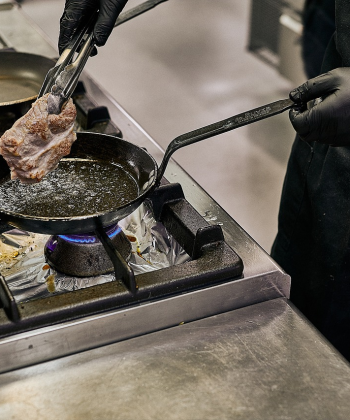Coffee is more than just a beverage; it’s a cornerstone of workplace culture and a vital productivity tool. Whether you run a small office, a bustling co-working space, or a large corporation, providing high-quality coffee can enhance employee satisfaction and performance. But how do you navigate the complex world of coffee procurement for your business? Here are six essential facts to keep in mind when purchasing coffee for business needs.
Invest in the Right Equipment
The quality of the coffee served is not solely dependent on the beans; the brewing equipment plays a critical role as well. Investing in high-quality coffee machines that suit your office’s needs is essential. For larger offices, commercial coffee machines might be necessary. Smaller offices might benefit from versatile machines that can make different types of coffee, from espresso to cappuccino. Additionally, consider machines that are easy to clean and maintain. The right equipment can make a significant difference in the coffee experience and can also save time and reduce wastage.
Understand Your Coffee Needs
Before you start shopping for coffee, it’s crucial to understand your office’s specific needs. Consider the number of employees, their coffee consumption habits, and the type of coffee they prefer. Some employees might favor a strong espresso to kickstart their day, while others might enjoy a smooth, milder brew. Conducting a survey or having informal discussions can help you gauge preferences. This understanding will guide your choices in terms of coffee types, quantities, and brewing equipment, ensuring you meet everyone’s expectations.
Choose Quality over Quantity
When it comes to coffee, quality should always take precedence over quantity. High-quality coffee not only tastes better but also shows that you value your employees’ satisfaction and well-being. Look for reputable suppliers who offer sustainably sourced, freshly roasted beans. Coffee quality is influenced by various factors, including the origin of the beans, the roasting process, and freshness. Opting for premium coffee might be more expensive, but the investment pays off in the form of happier, more productive employees.
Explore Sustainable Options
Sustainability is an increasingly important factor in business decisions, and coffee procurement is no exception. Many businesses are now choosing fair trade, organic, and Rainforest Alliance-certified coffees. These options support ethical practices and environmental sustainability. Fairtrade coffee ensures that farmers receive a fair price for their produce, promoting better working conditions and sustainable farming. Organic coffee is grown without harmful chemicals, which benefits the environment by preserving biodiversity and preventing soil and water contamination.
Additionally, organic coffee can be healthier for your employees, reducing their exposure to potentially harmful pesticides. Rainforest Alliance certification focuses on conserving biodiversity and ensuring sustainable livelihoods for farmers and forest communities. By choosing sustainable coffee options, your business can contribute positively to global environmental efforts, enhance your corporate social responsibility profile, and appeal to the environmentally conscious segment of your workforce. This commitment to sustainability can boost employee morale and reflect positively on your company’s brand.
Consider the Total Cost of Ownership
When budgeting for your office coffee, it’s important to look beyond the upfront costs. The total cost of ownership includes the price of the coffee beans, equipment, maintenance, and supplies like filters and cups. Subscription services for coffee delivery might offer convenience and cost savings in the long run, ensuring you never run out of stock. Evaluate all these factors to understand the full financial impact and ensure you’re getting the best value for your investment. A cost-effective approach balances quality, convenience, and sustainability, ensuring that your coffee program supports your business goals.
Pay Attention to Employee Feedback
Regularly soliciting and acting on employee feedback about the office coffee can help you fine-tune your approach. Tastes and preferences can change, and staying attuned to these shifts ensures that your coffee service remains relevant and appreciated. Feedback can also alert you to issues with equipment or supplies before they become major problems. Consider setting up a suggestion box or using digital surveys to gather input. Demonstrating responsiveness to feedback can boost morale, showing employees that their opinions matter and contributing to a positive workplace culture.
Purchasing coffee for your business involves more than just buying beans and brewing them. It requires an understanding of your employees’ preferences, a commitment to quality and sustainability, investment in the right equipment, and a thorough evaluation of costs. By focusing on these six key facts, you can create a coffee culture in your workplace that not only fuels productivity but also demonstrates your commitment to employee satisfaction and environmental responsibility. High-quality, thoughtfully sourced coffee can be a small yet powerful tool in fostering a positive, productive, and engaged workforce.



